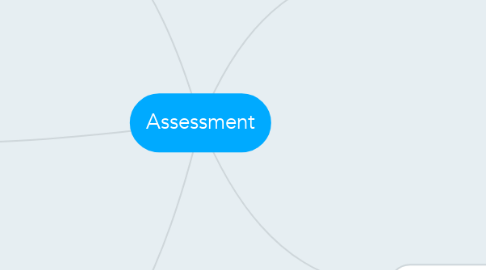
1. Planning
1.1. Goals
1.2. Reviewing
1.2.1. What to change
1.2.2. Unexpected results
1.2.3. Tasks provide necessary information
1.2.4. Reflection of students' understanding in their performance
1.3. Backward Desing
1.4. Unit evaluation
1.4.1. Improvements
2. Tools for asssesing
2.1. Evidence
2.1.1. students' understanding and thinking
2.1.2. Examples of students' work or performance
2.2. Students assessing work
2.3. Documentation of learning process
2.4. Exemplar students' work
2.5. Rubrics
2.6. Checklists
2.7. Anecdotal records
2.8. Continuums
3. Strategies
3.1. Open-ended tasks
3.2. Observations
3.3. Selected responses
3.4. Process - focused assessments
3.5. Performance assessments
4. Types of assessing
4.1. Diagnostic Assessment
4.1.1. Previous knowledge
4.1.2. Previous Skills
4.2. Formative Assessment
4.2.1. Planning next stages of learning
4.2.2. Knowing what we know and can do
4.2.2.1. Metacognition
4.2.3. reviewing skills adquisition
4.2.4. Improves knowledge and understanding
4.2.5. Self-assessment
4.2.5.1. Reflection
4.2.6. Giving students feedback
4.2.7. Recognize criteria for succes
4.2.7.1. evidence
4.3. Summative Assessment
4.3.1. Challenge
4.3.2. Students demonstrate what has bee learned
4.3.2.1. Can assess several elements simultaneously
4.3.3. Measures understanding of central idea
4.3.4. Prompts students towards action
4.3.4.1. Focus on knowledge application
4.3.4.2. Showing products
4.3.5. feedback
4.4. peer assessment
4.5. Self-assessment
5. Areas of assessment
5.1. Assessing
5.1.1. What students know and have learned
5.2. Reporting
5.2.1. Collect and analyse data
5.3. Recording
5.3.1. Communicate information
